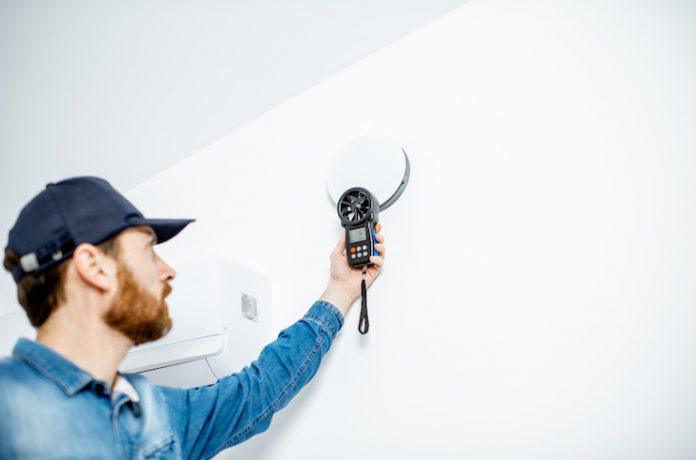Building executives are aware of the historical impacts the pandemic has had on the hospitality industry as hotel owners attempt to calm guests’ COVID-19 fears. Facility managers must put the health and safety of guests first and prove their buildings are safe for visitors. Hospitality executives are turning to high-quality air filtration and monitoring systems to give guests peace of mind and get a competitive edge in marketing.
Across the hotel industry, guests are still skeptical about placing their trust in a home-away-from-home. Guests no longer think a cleaning sticker on the door is enough. As the public stays home because of COVID-19, hotels are attempting to retain employees and draw in new guests.
Fighting Viruses with Air Quality
Guests being weary of travel isn’t new information. Ensuring the highest quality of air indoors might help reduce COVID-19 risks. Poor ventilation, filtration, and humidity levels in a building essentially lay out a welcome mat for dangerous viruses. Lacking good ventilation allows bacteria and viruses such as COVID-19 to circulate and float in the room.
HEPA filters or UVC purification are choices hoteliers have to upgrade a hotel’s system. As for humidity, the virus might be less dangerous in lower humidity areas, and it is necessary to use more resources to monitor and ventilate in higher humidity areas.
Systems in place to regulate air quality in indoor spaces can combine recommendations from multiple national and international bodies that set air quality standards, including EPA, OSHA, ASHRAE, and others.
Prove Hotel Safety with QR Codes
Once hotels have filters in place, there are ways in which they can prove to their guests that they’re actually working. Building executives should take advantage of new sensor technology that can detect air quality problems within minutes, not days. It’s like a security system for unhealthy air. Once a monitoring system can scrutinize for issues, it can help pinpoint problems for building staff so they can be fixed.
Air quality monitoring systems also play a vital role in alleviating guests’ fears by giving real-time access to a healthy building score. By scanning a QR code, guests can get a behind-the-scenes look of what’s in the air they are breathing in real-time. Visual dashboards displayed in a hotel lobby or the guests’ rooms can give a comprehensive overview of a building’s humidity, temperature, and CO2 levels. Plus, a live air quality score can be shown off in marketing on social media and on websites.
The Price of Pure Air
Making small affordable changes to a business’s existing air system can defend against the spread of viruses and grant buildings the ability to prove safety to guests. The costs of a smart IAQ monitoring system such as the most modern air quality technology average $200 to $300 per month for a typical hotel. Wireless air quality sensors enable a quick, affordable installation, too.
Many hotels are already spending thousands every month on enhanced cleaning and guest protections, guests may not trust a sticker on their hotel room door or a sign in a restaurant talking about cleaning routines. There will be significant competition for the guests that are willing to return to the in-person consumer market through the end of 2021 and extending throughout 2022. An air quality monitoring system that proves the building IAQ is safe is a huge differentiator from hotels choosing to say “trust us” with a sticker.
Hotel owners that implement these monitoring measures will have a significant edge over competitors, as they will be able to establish a better relationship with their customers. There is still a clear hesitancy from customers to properly return to a normal dining and travel experience. Implementing essential air quality and having dashboards with clearly presented metrics in buildings will go a long way to securing customers’ trust.
About the Author
John Bohlmann is the founder and CEO of HawkenAQ.











